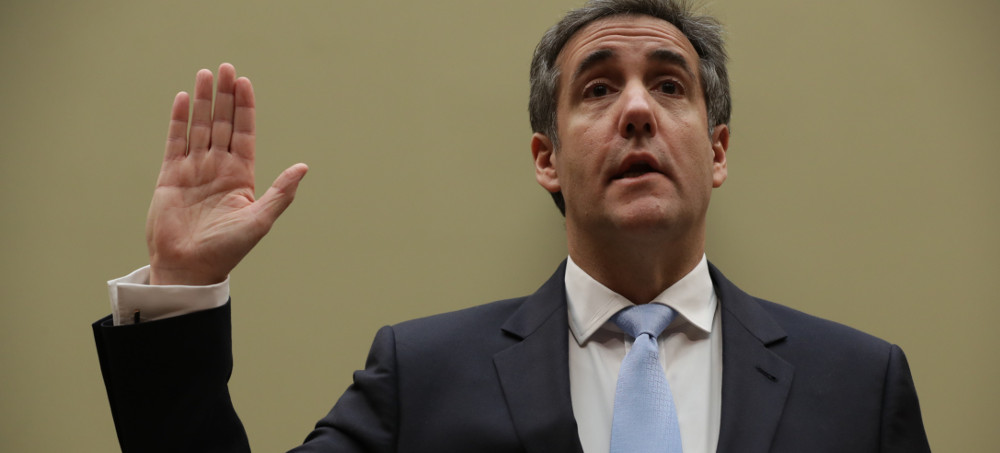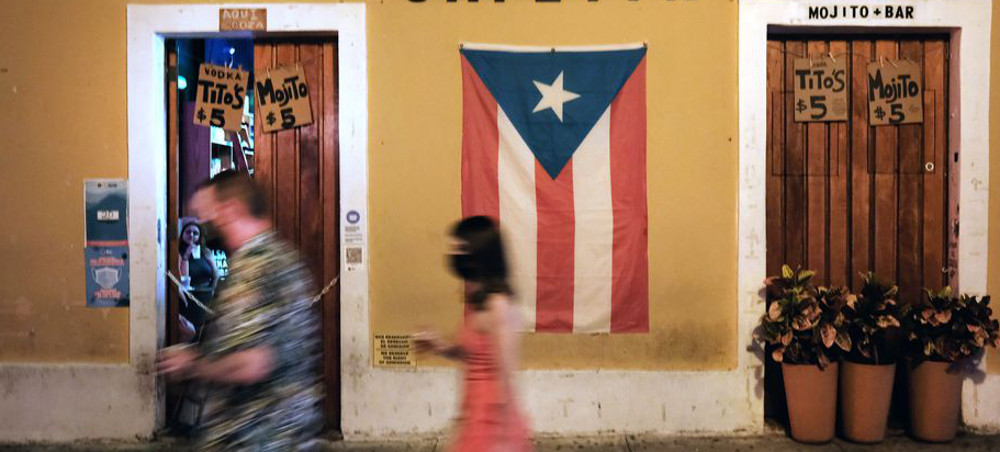Will Anything But Utter Desperation Work?
Our readers, the people who come here regularly, generally ignore funding for the organization until it is in desperate financial straits. Then they donate, but only then and not until. That of course guarantees desperate financial straits.
Help-out fairly and proactively.
Please.
Marc Ash
Founder, Reader Supported News
If you would prefer to send a check:
Reader Supported News
PO Box 2043 / Citrus Heights, CA 95611
Follow us on facebook and twitter!
Live on the homepage now!
Reader Supported News
I went to Minnesota alone and it was interesting discover that without my wife, I don’t know where things are or how to get the washer to work when it stops in mid-cycle and won’t resume. I can’t make sense of the instruction manual so I call her back in New York and she tells me to press START and hold it in and I do and the washer resumes. It’s downright embarrassing — my dad did his own auto repair and carpentry and I can’t operate an automatic washer. Thank goodness I still have a sense of shame.
Men are lonely hunters and herdsmen and I turned down dinner invitations because I struggle in social situations. I invited three women friends, strangers to each other, to lunch Saturday and they conversed easily among themselves and I sat at the end of the table, a silent observer. I thought to myself, “Their gender can get along fine without mine, and what will we do when they discover it?”
This was never so clear as in the Senate Judiciary Committee hearings, watching the hunters Graham, Hawley, Cruz, Cornyn, Cotton, go after Judge Ketanji Brown Jackson, who sat with calm and patient dignity and said, “Thank you, Senator” to each one and tried to answer their spitballs with reasoned comment. My gender looked stupid and craven on national TV that week and I cannot get that out of my mind, listening to elderly juveniles harass the teacher.
It was enough to make me wonder if men in public office should be required to wear a defibrillator that will shock them when they tell a fib, a little kick in the chest that says, “Shape up or ship out.”
Maybe warfare is the result of sheer stupidity, men needing to find something to do with themselves. The uniforms are wonderful, precision marching is satisfying, but there needs to be a larger purpose and why not go find men in another uniform and shoot them? My Minnesota friends of Viking heritage lead peaceful lives for the most part but in the fall they feel an overwhelming urge to get in a longboat and go burn a village and capture all the women and they satisfy the urge by going to a football game and getting good and drunk and then they’re good again.
The Great War of 1918 was the dumbest war that ever was and it was caused in part by the fact that armies had so much great new stuff they were desperate to use — tanks, planes, armored ships, bigger artillery — and the rulers and prime ministers strove to find an excuse to let them go to it and men marched off to war with bounding enthusiasm and about ten million soldiers died and twelve million civilians in a conflict that accomplished nothing except to lay the groundwork for the War of 1939.
Our institutions are busy pursuing diversity and inclusivity but it’s mostly cosmetic and what we need is detestosteronation of politics. The current Congress is gridlocked and I suggest we give them all a two-year sabbatical and elect a new one — we hope, with a female majority — and take a break from stupidity. Some things need to happen in America. Climate change must be addressed. A system of excellent affordable health care so that people, regardless of race or class, can take advantage of the advances in medical science. Child support and capable public education that guarantees every child a chance in life. Decent care for mentally ill, who now wind up homeless or in prison or in hopeless squalor. And fair taxation to pay for it.
All this can be done in two years if we elect representatives who have the caregiver gene — in other words, women — and then in two years the clown show can return and maybe we can declare war on Canada. Why not? Are you afraid of Canadians? Montreal must fall. Send the dogs to lift a leg on Winnipeg. Use judo on Trudeau. Improve Vancouver with stain remover. Nuts to the North!
 Michael Cohen, former attorney and fixer for President Donald Trump is sworn in before testifying before the House Oversight Committee on Capitol Hill February 27, 2019 in Washington, DC. (photo: Chip Somodevilla/Getty Images)
Michael Cohen, former attorney and fixer for President Donald Trump is sworn in before testifying before the House Oversight Committee on Capitol Hill February 27, 2019 in Washington, DC. (photo: Chip Somodevilla/Getty Images)
If prosecutors don’t indict Trump in the next nine days, their case against him is probably doomed.
In an interview with the Daily Beast, Cohen said that if the Manhattan District Attorney’s Office—which has been investigating Trump and his company for financial fraud since 2018—doesn’t indict Trump within the next nine days, he won’t help prosecutors if they attempt to revive the case in the future. The nine-day deadline isn’t some arbitrary end point Cohen came up with—it marks the last day, April 30, that the D.A.’s office has until its time with a grand jury impaneled six months ago expires. After that, prosecutors will need to ask jurors who have already heard evidence against Trump and the Trump Organization for half a year to continue to do so, or they’ll have to “call the whole thing off and awkwardly make the entire presentation all over again in front of another 23 jurors,” per the Daily Beast. And according to Cohen, if the D.A. ends up with a new jury, he’s out.
“I spent countless hours, over 15 sessions—including three while incarcerated,” Cohen told reporter Jose Pagliery, in explaining why he’d never again sit with investigators or testify against Trump at another trial in the future. “I provided thousands of documents which, coupled with my testimony, would have been a valid basis for an indictment and charge,” he said. “The fact that they have not done so despite all of this…I’m not interested in any further investment of my time.”
As the Daily Beast notes, that would be an extremely bad turn of events for anyone hoping for Trump to be held accountable for the first time in his life, as “Cohen was a cornerstone of the investigation from the moment it was launched by the previous district attorney,” and “the entire probe is named after him.” (It’s internally called “The Fixer,” which is what Cohen was known as while working for Trump, doing things like paying off women to keep quiet about alleged affairs with his boss.) According to Pagliery, prosecutors visited Cohen on three separate occasions while he was in prison and met with him numerous times after he was released, “taking extensive notes in which [Cohen] explained how the Trump Organization operated like a Mafia—how Trump avoided putting anything damning in writing, instead using innuendo to order his lieutenants to engage in fraudulent behavior.” That information, and the documents Cohen provided, helped the D.A.’s office build a case that, in July 2021, resulted in the Trump Organization and its former CFO, Allen Weisselberg, being charged with more than half a dozen felony counts, including conspiracy, grand larceny, and multiple counts of tax fraud and falsifying records. (Both parties have denied wrongdoing.)
And yet, since then, not only have no charges been brought against the guy who owns the company, but the case against him appears to have all but fallen apart. And not, according to the investigation’s two veteran prosecutors who resigned in February, due to a lack of evidence against the former president. In fact, in his resignation letter, attorney Mark Pomerantz wrote that Trump is “guilty of numerous felony violations” and that it would be a major “failure of justice” not to hold him accountable. (After Pomerantz’s resignation, Trump’s lawyer Ronald Fischetti told the Times, “I’ve been representing Donald Trump for over a year in this case, and I haven’t found any evidence that could lead to a prosecution against him, or any crimes.”)
“The team that has been investigating Mr. Trump harbors no doubt about whether he committed crimes—he did,” Pomerantz wrote. While the new district attorney, Alvin Bragg, has insisted the Trump investigation is ongoing, and that things could pick up speed again if fresh evidence is uncovered or an insider decides to cooperate, Pomerantz warned that not indicting now would be a huge mistake. “There are always additional facts to be pursued,” he said in his letter. “But the investigative team that has been working on this matter for many months does not believe that it makes law enforcement sense to postpone a prosecution in the hope that additional evidence will somehow emerge.” Noting that Bragg “devoted significant time and energy to understanding the evidence” in the case, and undoubtedly made his decision in good faith, Pomerantz nevertheless argued that Bragg’s decision “not to authorize prosecution now will doom any future prospects that Mr. Trump will be prosecuted for the criminal conduct we have been investigating.”
So you can probably understand why Cohen—and millions of Americans—is feeling pretty frustrated.
 Ukrainian servicemen are seen during exercises at a Joint Forces Operation-controlled area in, eastern Ukraine on Feb. 10, 2022. Officials with the Biden administration. (photo: AP)
Ukrainian servicemen are seen during exercises at a Joint Forces Operation-controlled area in, eastern Ukraine on Feb. 10, 2022. Officials with the Biden administration. (photo: AP)
 Employees in Amazon's warehouses want more protective measures. (photo: Amazon)
Employees in Amazon's warehouses want more protective measures. (photo: Amazon)
 People walk through Old San Juan on March 20, 2021, in San Juan, Puerto Rico. (photo: Spencer Platt/Getty Images)
People walk through Old San Juan on March 20, 2021, in San Juan, Puerto Rico. (photo: Spencer Platt/Getty Images)
The Court’s decision is a tremendous, if not unexpected, blow to poor Puerto Ricans.
But Vaello Madero is also a case about democracy, and whether democratic governments can enact policies that are needlessly cruel. In an 8-1 decision joined by every justice but Justice Sonia Sotomayor, the Court effectively answered that question in the affirmative.
The case involves Jose Luis Vaello Madero, an American citizen who is very poor. After Vaello Madero became seriously ill in 2011, he started receiving benefits under a federal program called Supplemental Security Income (SSI), which provides financial assistance to aged, blind, or disabled individuals who lack the means to support themselves.
About a year after he started receiving benefits, Vaello Madero moved from New York to Puerto Rico so that he could be closer to his family, and the government continued to deposit his SSI benefits into his bank account for a few years after that. In 2016, however, Vaello Madero filed for additional Social Security benefits, and the federal government learned for the first time that he’d relocated to Puerto Rico.
This seemingly innocent decision had terrible consequences for Vaello Madero because, by law, SSI benefits are only available to residents of the 50 states, the District of Columbia, or the Northern Mariana Islands. Puerto Ricans are eligible for a different program, known as Aid to the Aged, Blind, and Disabled (AABD), but the benefits under AABD are far smaller than the benefits available under SSI.
As Sotomayor notes in dissent, far fewer people are eligible for AABD benefits than would receive SSI benefits if SSI were available in Puerto Rico. And “Puerto Rico residents enrolled in AABD in 2021 received an average of $82 per month, compared to the $574 per month that the average SSI recipient received in Fiscal Year 2020.”
Worse, the government didn’t simply cut off Vaello Madero’s SSI benefits. In 2017, it sued him for over $28,000, claiming that he must pay back the SSI benefits he received while living in Puerto Rico.
And yet, in Vaello Madero, every justice but one joined an opinion, by Justice Brett Kavanaugh, holding that Congress could discriminate against Puerto Rican residents when deciding who is eligible for federal benefits.
Under existing law, Vaello Madero was correctly decided. It’s rooted in a longstanding legal rule, known as the “rational basis” test, which provides that courts should typically defer to the policy decisions made by elected branches, especially when those decisions involve economic policy. This rational basis test is one of the most hard-fought progressive victories of the Franklin Roosevelt administration, because it ensured that the Supreme Court would stop sabotaging New Deal programs.
But, as Vaello Madero shows, this sort of judicial deference can be a double-edged sword.
Rational basis, briefly explained
The rational basis test was a liberal democratic response to early 20th century Supreme Court decisions that sabotaged progressive legislation, often relying on highly dubious legal reasoning to do so. In the first third of the 20th century, the Court struck down federal child labor laws, invalidated minimum wage laws, stripped workers of their right to unionize, and struck down laws prohibiting employers from overworking their employees — among many other things.
After the Court started striking down New Deal programs, Roosevelt went to war with the Court’s conservative majority— at one point threatening to add additional seats to the Supreme Court in order to dilute the conservative justices’ votes. Eventually, conservative Justice Owen Roberts broke with his four most right-wing colleagues and started voting with more liberal justices to dismantle the doctrines the Court had used to strike down things like child labor laws.
The culmination of this turn towards judicial restraint was United States v. Carolene Products (1938), which established that, with some important exceptions, legislation — and especially economic legislation — “is not to be pronounced unconstitutional unless in the light of the facts made known or generally assumed it is of such a character as to preclude the assumption that it rests upon some rational basis within the knowledge and experience of the legislators.”
Basically, under this rational basis test, courts will uphold nearly all legislation so long as the government is able to articulate some rational reason why it should exist. Kavanaugh’s opinion in Vaello Madero holds that Congress’s decision not to provide SSI benefits to Puerto Rican residents clears the very low bar set by the rational basis test.
As Kavanaugh notes, “residents of Puerto Rico are typically exempt from most federal income, gift, estate, and excise taxes,” but they do pay “Social Security, Medicare, and unemployment taxes.” Meanwhile, on the benefits side, residents of Puerto Rico are eligible for some federal benefits — including Medicare, Social Security, and unemployment benefits — but not others.
Given that residents of Puerto Rico, as a whole, pay fewer taxes than residents of the mainland, Kavanaugh concludes that it is rational for those same residents to receive fewer benefits.
As a policy matter, this argument isn’t especially convincing. As Sotomayor writes in dissent, SSI is not a program for the territory of Puerto Rico, it is a program for individual Americans. And, because SSI is a program for the poor, “SSI recipients pay few if any taxes at all,” regardless of where they live. If Vaello Madero moved back to New York, it is unlikely that he would pay any federal income taxes, but he would nonetheless be eligible for SSI.
But the rational basis test does not care if a federal policy is actually a good idea — the whole point of this test is to get judges out of the business of second-guessing Congress’s policy choices. And so, if you accept that the New Deal Court was correct to stop sabotaging Roosevelt’s policies, it’s difficult to argue persuasively that the current Court may override Congress’s approach to Puerto Rico.
The Constitution only forbids certain kinds of discrimination
Vaello Madero’s strongest legal argument is that there are exceptions to the rational basis rule. As the Supreme Court held in City of Cleburne v. Cleburne Living Center (1985), one important exception is that the Constitution typically forbids discrimination against groups that have “experienced a `history of purposeful unequal treatment’ or been subjected to unique disabilities on the basis of stereo-typed characteristics not truly indicative of their abilities.”
In their brief, Vaello Madero’s lawyers argue that Puerto Ricans have historically faced such discrimination.
Indeed, if Congress had excluded all people of Puerto Rican descent from receiving SSI benefits, that law would be unconstitutional — discrimination on the basis of race or ethnicity is almost never allowed. But that’s not what this law does. As the government argued in its brief, the Constitution’s anti-discrimination protections have historically been understood to prevent “unequal treatment of classes of persons, not unequal treatment of regions.”
Federal law excludes all people who live in Puerto Rico, regardless of their race or ethnic background. And if someone from Puerto Rico moves to the mainland — as Vaello Madero did when he lived in New York — they are eligible for SSI benefits.
That said, there is at least one very high profile example of the Court forbidding “unequal treatment of regions,” and it occurred in a case that many civil rights advocates view as one of the worst decisions of the modern era.
In Shelby County v. Holder (2013), the Court struck down a provision of the Voting Rights Act that requires states with a history of racist election practices to “preclear” any new election rules with officials in Washington, DC, before those new rules could take effect. The Court’s Republican majority determined in Shelby County that Congress generally cannot treat different states differently.
Shelby County is wrong for many reasons, but one of those reasons is that the Court seemed to abandon the deferential rational basis test in order to strike down a voting rights law. Congress undoubtedly had a rational reason for treating states with a history of Jim Crow-like practices differently than states which have historically respected the right to vote.
Shelby County, and not Vaello Madero, was a departure from the ordinary rule that courts should be reluctant to second-guess Congress’s policy decisions. Again, the decision in Vaello Madero is consistent with decades of Supreme Court decisions calling for judicial restraint.
But that restraint becomes a partisan weapon if it is applied selectively. The biggest problem with Vaello Madero isn’t its recognition that achieving the broad goal of allowing democratically elected legislatures to govern sometimes means upholding unjust laws.
The problem is that, if the Court was willing to make an exception to its longstanding rules to restrict the right to vote, why wasn’t it willing to do so to help impoverished Puerto Ricans?
 Marine Le Pen waves to her supporters at the end of her electoral campaign rally on April 14, 2022 in Avignon, France. (photo: Getty Images)
Marine Le Pen waves to her supporters at the end of her electoral campaign rally on April 14, 2022 in Avignon, France. (photo: Getty Images)
 School children participate in the School Strike for Climate in New York City, March 25, 2022. The students held a rally at Brooklyn Borough Hall and marched over the Brooklyn Bridge to Foley Square to bring attention to the inaction of city and state officials to face the current climate emergency. (photo: Erik McGregor/Getty Images)
School children participate in the School Strike for Climate in New York City, March 25, 2022. The students held a rally at Brooklyn Borough Hall and marched over the Brooklyn Bridge to Foley Square to bring attention to the inaction of city and state officials to face the current climate emergency. (photo: Erik McGregor/Getty Images)
A case in Montana is set to go to trial in early 2023.
"When I was little, my older sister was very concerned about climate change, and I didn't really know what it was,” said Lazar. “But she was so worried and so afraid and had so much anxiety that transferred over to me and I started worrying about it."
Six years after making that film, Lazar is now part of a group suing the state of Virginia for its alleged part in causing the nation's climate crisis. The case is just one in a series of lawsuits nationwide where youth are going to the courts to fight climate change.
"A lot of us are under 18. I'm only 17 years old. I don't really have a voice except to through the court," said Ava. "Just the realization that, oh, it's possible for me to sue the Commonwealth of Virginia. And not only that, but it's happening in other states too was really reassuring."
While the Virginia case, filed in February, is in its infancy, others are beginning to break through the legal armor. Officials in the Held v. State of Montana lawsuit have a trial set to start on Feb. 6, 2023, the first case of its kind to receive a court date in the United States. This comes after the state of Montana had its motion to dismiss the case rejected by a district court judge.
In Montana, youth claim that state lawmakers have consistently prioritized fossil fuel infrastructure and profits to the detriment of their future. They argue that the state's actions have violated their constitutional right to a healthy and safe environment.
"As a parent, you know, having our kids basically fix what we have screwed up, in the true way that it can happen is a real point of pride for us,” said Sarah Busse, the parent of two Montana youth plaintiffs. “But also a point of like, we messed up, so they're fixing it?"
Nationwide, youth activists say they see the dire consequences of climate change and know that waiting for government action isn't good enough.
"Youth often feel obligated to do this because of the pure fact that we are young and we need this protection," said Grace Gibson-Snyder, an 18-year-old plaintiff in the Montana case.
Growing up in Missoula, Montana, Gibson-Snyder developed a connection to the environment that inspired her to get involved.
Lander and Badge Busse, brothers from Kalispell, Montana, say they have already experienced the consequences of climate change. They've had to stay inside at school due to wildfire smoke and seen their favorite hobbies, like skiing, change right before their eyes.
"I was sitting on the chairlift with my coach and we were talking about how when he has his kids, or when I have my kids, they're not going to be able to ski on like actual snow … which kind of broke my heart because I love skiing," said 14-year-old Badge Busse.
He added, "I would like to share it with my kids and their kids. I feel like that's not gonna happen."
As plaintiffs in the Montana case, they hope to be a part of a significant push nationwide toward legal remedies, regardless of the outcome of their case.
"We're not expecting to fix all of Montana's pollution issues immediately or anything like that. But we are definitely hoping to start a catalyst for hopefully these things," said Lander Busse.
With two youth cases already filed this year and two more expected in the summer, the movement is gaining steam.
Our Children's Trust, the Oregon-based firm responsible for filing many of these cases, has additional lawsuits in Alaska, Florida, North Carolina and Utah as well as a federal case, Juliana v. United States.
The Juliana case was dismissed by a federal court, which said the remedy the plaintiffs sought was beyond the scope of the law cited, adding that the plaintiffs’ case "must be made to the political branches or to the electorate at large." In the aftermath of that ruling, the firm has filed an amended complaint and hopes to receive a trial in the case later this year or early next. Achieving that could be vital in its battle to start turning symbolic victories into legal ones.
"I think all of these cases are winnable if we can get to trial. And it's one reason why I'm really excited about our Montana state case," said Julia Olson, the executive director and chief legal counsel at Our Children's Trust.
The Montana state constitution states explicitly that "the state and each person shall maintain and improve a clean and healthful environment in Montana for present and future generations," a clause that the plaintiffs believe gives them the key to unlocking a legal victory.
Whether or not that will be attained waits to be seen. In its motion to dismiss, the state of Montana argued that the injuries the plaintiffs were claiming were "not caused by the statutes they seek to invalidate."
"These lawsuits have been very successful in bringing public attention to the climate crisis, and in obtaining court decisions affirming the nature of the problem. So far they haven't led to binding orders that compel action. Perhaps the Montana case will be the first," said Michael Gerrard, the director of the Sabin Center for Climate Change Law at Columbia Law School.
Young Americans looking to pursue these lawsuits often get in touch with Our Children’s Trust through a network of youth environmental organizations. At that point, the two sides have a conversation about whether or not the individual would be a good fit to join a case.
Our Children's Trust and the youth plaintiffs have teamed up to argue that other state constitutions, and that of the United States, provide the legal backing they need to win cases across the country. Until they get their day in court, it's a matter of showing others who aren't old enough to vote that they shouldn't let that stop them from having their voices heard.
Lander Busse doesn't see anything unique about who he is and what he and his brother have become a part of: "We're just some kids from northwest Montana who wanted to do something and got given an opportunity. That [other kids] should be able to make a difference as well."
The Montana Department of Natural Resources and Conservation, one of the defendants in the Montana case, said it would not comment on ongoing litigation when contacted by ABC News. In Virginia, the defendants pleaded "sovereign Immunity," which shields states from liability for alleged wrongdoing. The Virginia Department of Environmental Quality declined to comment on the case.
All other defendants from the Montana and Virginia cases did not return ABC News' request for comment.
Special Coverage: Ukraine, A Historic Resistance
READ MORE
Follow us on facebook and twitter!
PO Box 2043 / Citrus Heights, CA 95611



No comments:
Post a Comment
Note: Only a member of this blog may post a comment.